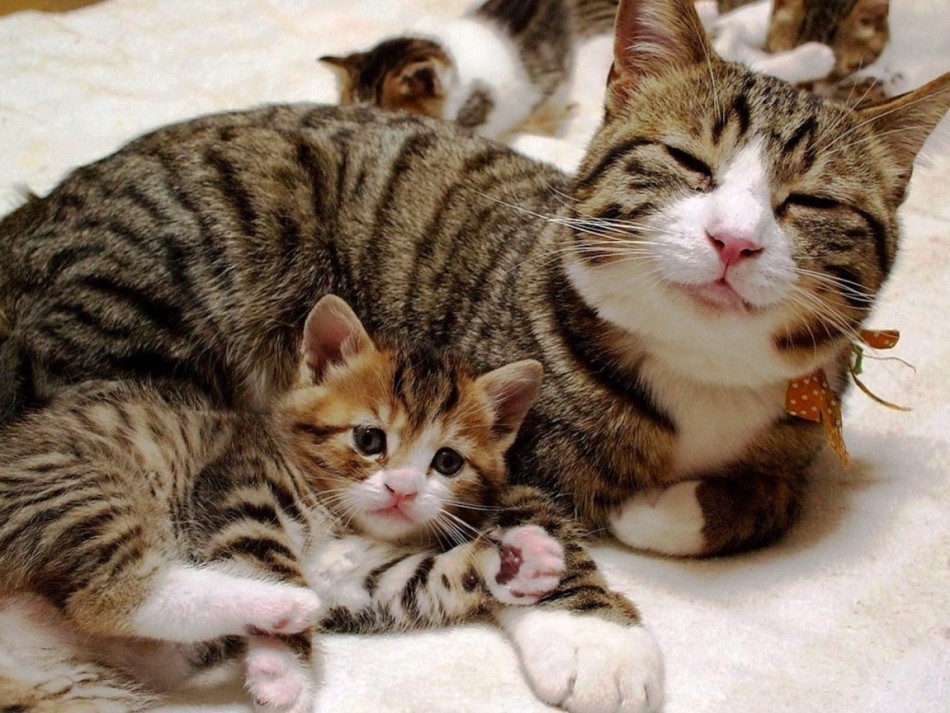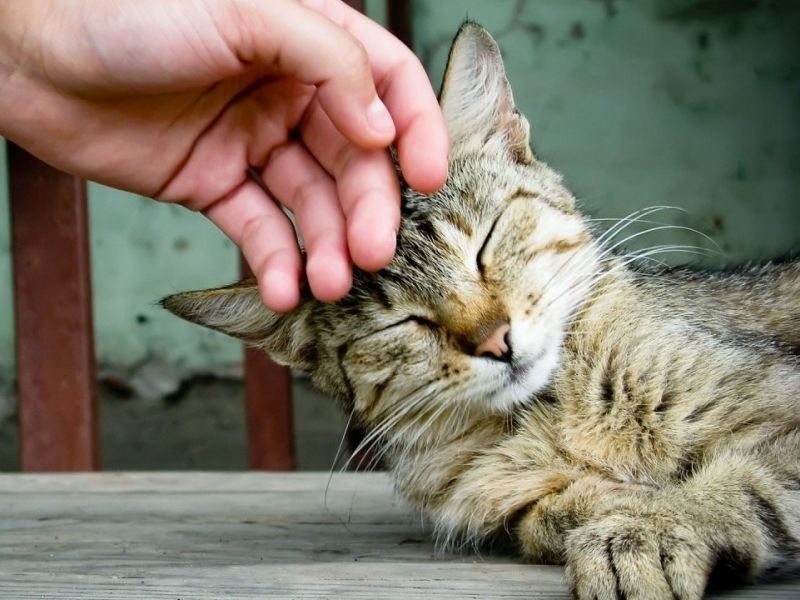The causes and mechanism of the purification of cats.
Content
Cats are favorite pets who love affection. In addition, they are independent and often walk on their own, despite the presence of the owners. In this article we will tell you why cats purr and how they manage to make this sound.
Why are cats and cats purr?
The most interesting thing is that more recently it was established why and how cats purr. Although in fact they do this all their conscious life.
The reasons:
- Most often, a similar sound, which is very similar to grunting or rumbling, occurs with positive emotions of the animal. This usually happens when it is stroked, caressed.
- Sometimes this sound appears during meals. But most often purring occurs in positive situations, during the relaxation of the animal.
- It is noted that there are some types of anxious purring, when the cat is scary, she is worried or it hurts. Accordingly, purring does not always indicate that the cat is pleasant. Be attentive to the frequency of sound and its features.

Why purr the cats?
Not so long ago, British scientists have determined that cats can purr in order to improve or cure their master, perhaps another pet. Sound therapy has been known for a long time. It is not for nothing that sick children include classical music. The actually the process is almost the same.
British scientists during the study found that the sound in which the cat purrs is observed in the range of 20-150 hertz. At the same time, from 20 to 140 - this purr is therapeutic. It was found that such purring heals bone tissue, promotes the restoration of the body, and also cures diseases of the heart and blood vessels.

What does the purification of a cat, cat mean?
Not so long ago, British scientists began to use sound therapy, namely the purring of cats in the recording. This is done so that the astronauts who arrived on the ground after a long stay in space are adapted faster. It is purring that helps to restore muscle, bone tissue.
Accordingly, the reasons for the purple of the cat can be a huge number. Actually, as well as laughter or tears in a person. A person can laugh and cry with happiness. In the same way, the cat purrs when she is happy or vice versa, when she feels anxiety. It is noted that cats can purr when they want to eat, feel anxiety or are afraid of something.

How cats purr, due to which cats and cats purr, where sound is made from: mechanism
Scientists have found out the origin of this sound. How does the cat purred? The fact is that this is not at all purification, but a kind of sound that is reproduced with the help of thin bones that are under the tongue. The sound mechanism is quite complicated. When the cat is stroked, it becomes good, she enjoys or vice versa, feels a feeling of anxiety, a certain signal enters the brain centers.
The impulse gives signals to these bones that begin to vibrate. Together with these bones, vocal cords vibrate. It turns out a kind of sound. The cat can purr both on inspiration and exhalation, without making any efforts. Such a sound is reproduced reflexively.

Why when do you stroke the cat, he purrs?
Do not be surprised if you stroke the cat for a long time, it will begin to purr. This is due precisely with obtaining positive emotions. The animal likes such stroking, they soothe him. Accordingly, the cat makes a characteristic sound. Sometimes pets can come to their owners, go to bed near them and purr for no apparent reason, even if you do not stroke them. This is due to the desire to heal.
Often cats lie down near the place that is sick. Perhaps these are chronic diseases. It is in such places that cats fit, lean and purr. Thus, they are trying to cure their owner. The cat can purr for the simple reason that is hungry or wants to walk. Accordingly, in this case, the nature of the purn will differ.

Why are kittens purr?
British scientists have established that cats can purr, starting from a two -day age. Thus, they signal their mother that they want to eat, they are afraid of something. This is a kind of communication between kittens and an adult cat. We can say that in such a peculiar language they speak.
Thus, the cat often leaves its kittens to eat. If she is in wild conditions, then approaching her nest, she begins to purr, thereby telling her kittens that there is no need to squeak, she is next to him and is already approaching the house. At the same time, kittens can purr in response. This is especially common if the cat licks them, cares for them. This is a kind of gratitude, kittens seemed to tell her that they are warm, good and they are very satisfied. Zoologists believe that such a purple of small kittens stimulates lactation in a cat and provokes it to better care for the offspring.

As you can see, cats purr for various reasons. If, with prolonged caresses, your pet does not purr, but ignores you, you should think about the psychological comfort of the animal. Perhaps the cat is unhappy with something or feels negative emotions on your part.







